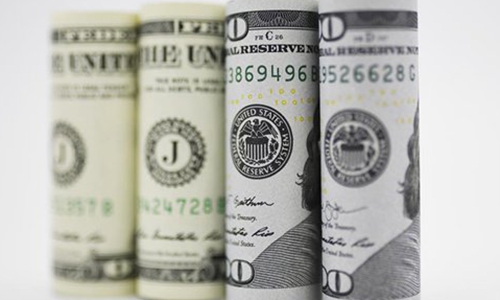
Photo: Xinhua
China's foreign exchange reserves rose slightly to $3.09 trillion at the end of April, data from the State Administration of Foreign Exchange (SAFE) showed on Thursday. If anything, the latest statistics indicate China has not moved to reduce its US Treasury holdings, despite US media reports that Washington may renege on its debt obligations to China.If China were serious about selling off US Treasury bonds to hit back at Washington's recent COVID-19 compensation claims, then April's foreign exchange reserves should have at least recorded some more drastic changes.
Generally speaking, China is unlikely to dump its holdings of US Treasuries simply due to some noise over the possibility of the US intentionally defaulting on debts held by China. Nor will China see the move as a means of retaliation in response to the renewed US-China trade tensions amid the global pandemic.
It is no secret that of China's more than $3 trillion foreign exchange reserves, about one third is held in US Treasury bonds. According to data released by the US Treasury Department in mid-April, China's holdings of US Treasury bonds reached $1.09 trillion in February.
However, it should be pointed out that although China and Japan are the two largest overseas holders of US Treasury notes in media, about 60 percent of US Treasury bonds are actually issued to American domestic investors, while foreign holdings total $7 trillion. In this sense, China's holdings of US debt are indeed large, but not large enough to shake the fundamentals of the US Treasury bond market.
So if China really intends to cut its vast holdings of US Treasury securities, it needs to sell at a discount, which means a potential loss on investment. And the move wouldn't necessarily deal a serious blow to the US government.
Likewise, it would be foolish of Washington to cancel US debt obligations owed to China, as such a move would hurt the US more than China by destroying investors' faith and the US government's credit - which are detrimental to the dollar's global hegemonic position. Even China hardliner Larry Kudlow said, "Full faith and credit of US debt is sacrosanct."
In fact, a war of words between the US and China regarding who should be responsible for the coronavirus pandemic has fueled market concerns over risks faced by Chinese holdings of US debt and Chinese companies' assets in the US. To be honest, we've seen enough of such threats over the security of Chinese investment and assets, which have brought nothing but unnecessary economic repercussions to the market at a time when the pandemic has already rattled the global economy.
It is also worth mentioning that the US Treasury Department is expected to borrow a record $3 trillion in the second quarter to pay for the cost of handling the coronavirus outbreak. While the Fed has promised unlimited credit, it is still essential for the US to stabilize market sentiment to avoid unnecessary financial turbulence at this juncture. In this sense, Washington needs to send out more positive signals guaranteeing the credit of US Treasury notes and the safety of Chinese assets in the country.
